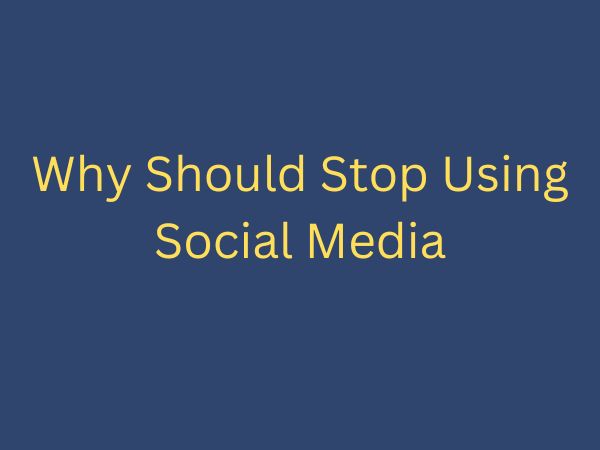
Introduction
The harm that social media can do to your mental health is well known, but it still has to be said. Research consistently links increased social media use with increased severe depression and anxiety, and it is widely noted
that the historic rise in suicide rates has coincided with the rise in social media use. This is the kind of information that ought to terrify us, but for some reason, we’ve grown terrifyingly insensitive to it.
It is simple to assign blame for social media users’ issues to them from the outside. How many times have we heard patronizing comments about how much time young people spend on their phones? However, because of our deliberate disregard for the negative impacts of social media and the victim-blaming tone of many of our discussions about it, we ignore holding social media businesses accountable for their action Instagram,
However, I think the advantages far exceed the disadvantages. Without social media, it’s far simpler to cultivate friendships than it is to promote mental wellness when using it. Socializing without social media has been a fulfilling experience for me. It has made me emphasize face-to-face contact, worry less about how other people perceive me and has enabled me to develop several close-knit, profound relationships.
The problem with selling on social media
We are inundated with spam, advertisements, and automatically posted content every day that vies for our attention. We all start to lose consciousness at some time. We ignore those posts when we get on social media in search of something “real” to relate to, like a friend’s meme or a family member’s update.
This implies that for a business, your posts are likely to be ignored if you’re adding to the noise by attempting to sell on social media. Your material will be quickly overlooked by your viewers in favor of something relatable.
Stop using social media for sales
I’m not saying you should permanently stop using social media. It may be an excellent venue for fostering relationships with clients and growing your company. However, my recommendation is to separate your social media content from your sales approach.
Social media content should be precisely that—social. Make an effort to establish those relationships by paying attention to your audience and striking up discussions whenever you can. A genuine relationship-building back-and-forth can accelerate business growth considerably more quickly than any social media sales strategy.
The Impact on Mental Health
Social Comparison and Self-Esteem
The incessant comparison to others on social media is one of its biggest drawbacks. Feelings of inadequacy and low self-esteem might result from viewing carefully chosen and idealized depictions of other people’s lives.
Anxiety and Depression
Excessive social media use has been linked in studies to mental health problems like depression and anxiety. These circumstances can be made worse by the pressure to uphold an online reputation and the dread of missing out.
Loss of Productivity
Scrolling through social media feeds for hours on end can hurt productivity. Notifications and updates can easily divert one’s attention, which can result in activities going incomplete and delays.
Privacy Concerns
Due to social media companies’ extensive user data collection, privacy has grown to be a serious problem. You can be mistaken about how secure your personal information is, as there are potential data breaches and targeted adverts.
Conclusion
Even while social media has numerous advantages, it’s important to be aware of any potential drawbacks. The disadvantages frequently exceed the benefits, from privacy problems to mental health difficulties. Social media consumption should be restricted or avoided if you want to enhance relationships, productivity, and overall well-being.